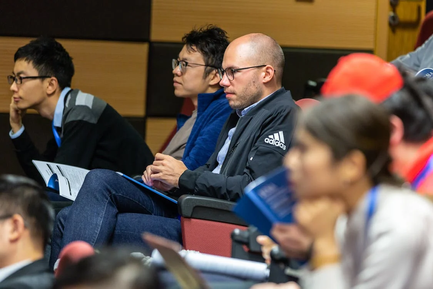How to apply for a bachelor's program in Germany
If applying after completing the 11th grade of a school or college, your initial step should be to undertake preparatory courses at a Studienkolleg. Upon gaining admission to a university, you will be directed to these courses.
After finishing the preparatory courses and successfully passing the FSP final exam, the next step involves reapplying to your chosen university. For many institutions, this process is largely a formality, resulting in automatic enrollment. Should you decide to opt for a different university, you can employ the same FSP results and certification. There is no need to revisit the Studienkolleg phase.
For those who attended a private Studienkolleg, the procedure remains the same — completing the FSP, gathering your high school diploma and language certificate, and applying to the university. It's advisable to search for a private Studienkolleg offering the universally recognized FSP program.
You can also directly apply to a German university, bypassing the Studienkolleg phase. This route suits school graduates who have already completed a year of bachelor’s studies in their home country. However, your chosen field of study must align with the program in which you intend to enroll in Germany. Additionally, ensure that your university holds recognition in Germany. You can verify this information on the Anabin website.
Important
If you intend to study at a university in your home country before pursuing education in Germany, it's essential to monitor your academic performance. Your grades hold significance beyond mere formalities, as they will contribute to your GPA when you apply to a German university.
Required documents
-
Completed application form
-
Passport copy
-
Notarized translation in English or German of your high school certificate and transcripts
-
Language exam results (if applicable)
-
Final exam results from Studienkolleg or university transcripts for the first year
-
Proof of financial solvency — sufficient funds in your bank account at a rate of 13,451 USD / year
-
Medical insurance
-
Recommendation letters
-
Motivation letter
-
CV
Document submission is usually overseen by the uni-assist service. However, admission to programs subject to national quotas may require additional registration.
Numerus clausus — university admission quotas:
In Germany, a Numerus clausus system exists to regulate the allocation of study placements. This results in universities falling into three distinct categories:
-
Unrestricted admission. This includes universities that do not impose any limitations on the number of available spots and admit all candidates who meet the requirements. This is more common at institutions with high dropout rates and in fields like mathematics, physics, and engineering. The rate of students who do not pass exams can rise as high as 94% in such cases[4].
-
Local quotas. Given that federal states and universities have significant autonomy in educational organization, they can independently enforce restrictions on the number of admission slots. These limitations may apply to specific fields or even the entire university. In such scenarios, admission not only depends on entrance exams, but also motivation letters, recommendations, CVs, and interviews. This selection method is becoming more and more common at German universities[5].
-
National quotas. Across all German universities, quotas are in place for specific fields, including dentistry, veterinary medicine, medicine, and pharmaceuticals. These programs allocate only a small fraction, approximately 4-6%, of the total study spots to foreign students[6].
Document submission deadlines might vary if the university employs the VPD procedure (Vorprüfungsdokumentation) — a preliminary documentation evaluation of previous diplomas. Upload your documents well in advance on the university's website, as processing a VPD request can typically take from 4 to 6 weeks[7].
More about: admission into other degree programs
Immigration prospects after studying
Following university graduation, you have the option to prolong your visa for a year and a half to search for employment (Aufenthaltsgenehmigung). The German job market is notably competitive, and the unemployment rate is 5.9%. To provide context, the European average stands at 6.5%[8].
In March 2020, the priority check system was canceled. As a result, EU citizens no longer hold an official employment advantage over foreigners[9]. And, even if you face challenges in the German job market, opportunities can still be pursued in other EU countries. A German diploma carries substantial global recognition and esteem.
More about: immigration to Germany
Master's programs
In Germany, master's programs taught in English are widespread. Consequently, the number of foreign graduate students surpasses that of bachelor students, with figures standing at 197000 against 130000[1].
Abundant scholarships are available for students pursuing master’s programs. Besides DAAD, which offers financial support across all study levels, the Heinrich Böll Foundation is another notable option. This foundation concentrates its scholarships exclusively on undergraduate and doctoral students.
More about: master's programs in Germany
























